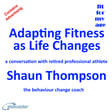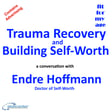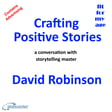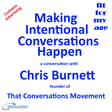
Understanding Solution-Focused Therapy - a conversation with clinical hypnotherapist Keira Smith
Keira Smith is a clinical Hypnotherapist and founder of Positive Change Hypnotherapy
In this episode of the Abeceder podcast Fit For My Age Keira explains to host Michael Millward what solution-focused therapy is, and how the process works.
In a wide-ranging discussion Keira describes what we know about how the brain works and how different situations and triggers prompt different responses, and different behaviours.
One element of these responses is how they create the behaviours for how we manage our past. There shouldn’t necessarily be a problem, unless our way of managing our memories has a negative impact on how we deal with the present and our future.
The process of solution-focused therapy helps to retrain the brain so that people can create a new way of thing that helps them to build their own solution for their future and to adapt that solution as times change.
Ultimately, says Keira, solution-focused therapy is about rebuilding the confidence in individuals so that they can become advocates for themselves.
Audience Offers
Proactive Positive Ageing.
It is always a good idea to know the risks early so that you can take appropriate actions to maintain good health, that is why we recommend The Annual Health Test from York Test.
York Test provides an Annual Health Test. An experienced phlebotomist will complete a full blood draw at your home or workplace. Hospital standard tests covering 39 different health markers are carried out in a UKAS-accredited and CQC-compliant laboratory.
A Personal Wellness Hub gives access your easy-to-understand results and guidance to help you make effective lifestyle changes anytime via your secure, personal Wellness Hub account.
Visit York Test and use this discount code AGE25.
Fit For My Age is made on Zencastr, because Zencastr is the all-in-one podcasting platform, that really does make creating content so easy.
If you would like to try podcasting using Zencastr visit zencastr.com/pricing and use our offer code ABECEDER.
Travel Members of the Ultimate Travel Club enjoy travelling at trade prices on flights, trains, hotels, holidays and so many other travel related purchases. Use the link to access discounted membership.
Find out more about both Michael Millward and Keira Smith at Abeceder.co.uk.
Matchmaker.fm If you are a podcaster looking for interesting guests or if like Laurence, you have something interesting to say Matchmaker.fm is where great hosts and great guests are matched and great podcasts are hatched. Use our offer code MILW10 for a discount on membership.
Being a Guest
If you would like to be a guest on Fit For My Age, please contact using the link at Abeceder.co.uk.
We recommend the podcasting guest training programmes available from Work Place Learning Centre.
We appreciate every like, download, and subscriber.
Thank you for listening.



















